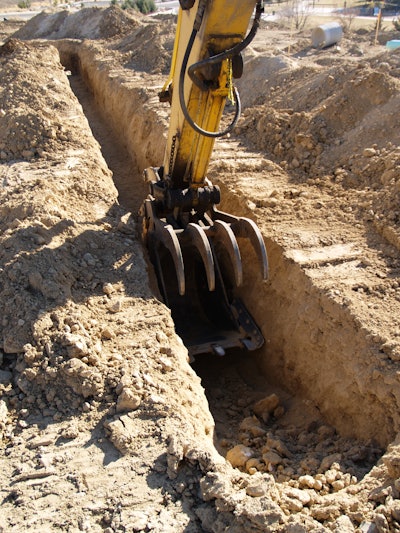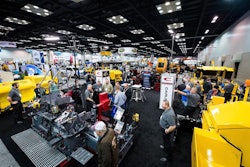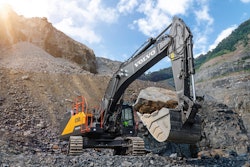
A Colorado contractor has been sentenced to 10 months in jail after one of his workers died in a trench collapse in 2018.
Bryan D. Johnson, president of residential and commercial general contractor ContractOne of Avon, pleaded guilty in June to two counts of reckless endangerment and one count of third degree assault. His sentence, handed down July 15, also includes three years of probation, up to $25,000 in restitution to the worker’s family, donations to local charities and safety training. He also has to participate in the U.S. Department of Labor’s Workers Memorial Day Ceremony and allow the U.S. Occupational Safety and Health Administration to inspect his worksites without an administrative warrant. He also must not commit any future serious or willful OSHA violations.
Rosario “Chayo” Martínez, 50, was working in an 8-foot-deep trench June 14, 2018, attaching a copper water pipe to a main line when the trench collapsed and buried him, according to OSHA. Martinez’s son was also working on the site and helped to dig his father out. Martinez died later at the hospital.
The trench had previously collapsed the day before the incident, “but Johnson ignored obvious signs to change his procedures,” OSHA says.
Martinez had not been trained in trenching, according to OSHA. He was hired to install drywall and for carpentry work.
OSHA later cited ContractOne with one willful violation – OSHA’s most severe penalty – for not having a protective system to prevent cave-in, as well as 12 serious violations and one other violation. The serious violations included no worker hard hat or eye or face protection, no ladder or other means to exit the trench, working in a trench with accumulated water, materials and equipment closer than 2 feet from the edge of the trench, and the trench had not been inspected by a competent person before workers entered.
OSHA fined ContractOne $57,463 on December 6, 2018. The contractor contested the penalty, which was later reduced to $40,000.
According to a former GoFundMe page set up for Martínez, he was a husband and father.
“He was kind, funny, smart, hard-working and the sole provider for his family that lives in Mexico,” the fundraising page said. “We will miss him tremendously but will try to find solace in the knowledge that his spirit will remain long after his passing.”
Martinez’s family had not wanted Johnson to face criminal prosecution or get jail time, according to a report of the hearing by Sky-Hi News. Johnson has assisted the family financially after the death and was a close friend of Martinez’s, the newspaper reported.
Johnson was quoted by Sky-Hi News during the hearing as saying, “I understand now the accident was completely avoidable and it was my responsibility to see that it was avoided. There will never be a day that I don’t think about all the different ways that day should have gone.”
OSHA said criminal enforcement is an effective tool in combating trench collapses, which are avoidable if proper safety measures are taken.
“Safety and health is paramount and takes precedence over production or profits,” said U.S. Department of Labor Regional Solicitor John Rainwater, in Denver. “The department believes the facts of this case warrant the sentence, and we support the District Attorney’s efforts to hold Johnson accountable for failing to protect workers under his care and supervision. Incarceration sends a strong message. We believe that prosecuting criminal cases has the ability to change the industry.”
OSHA’s inspection report was used by the district attorney’s office in deciding to prosecute the case. Johnson showed “particularly egregious behavior” before the incident, said OSHA Acting Regional Administrator Nancy Hauter, in Denver. “Trenching is one of the most dangerous activities in the construction industry and Bryan Johnson failed to take any affirmative steps to protect employees, despite repeated warnings that work activities at the jobsite were hazardous.”












